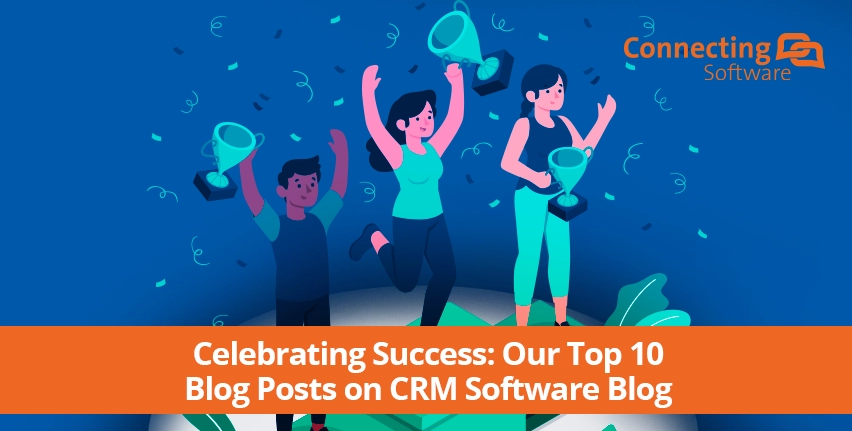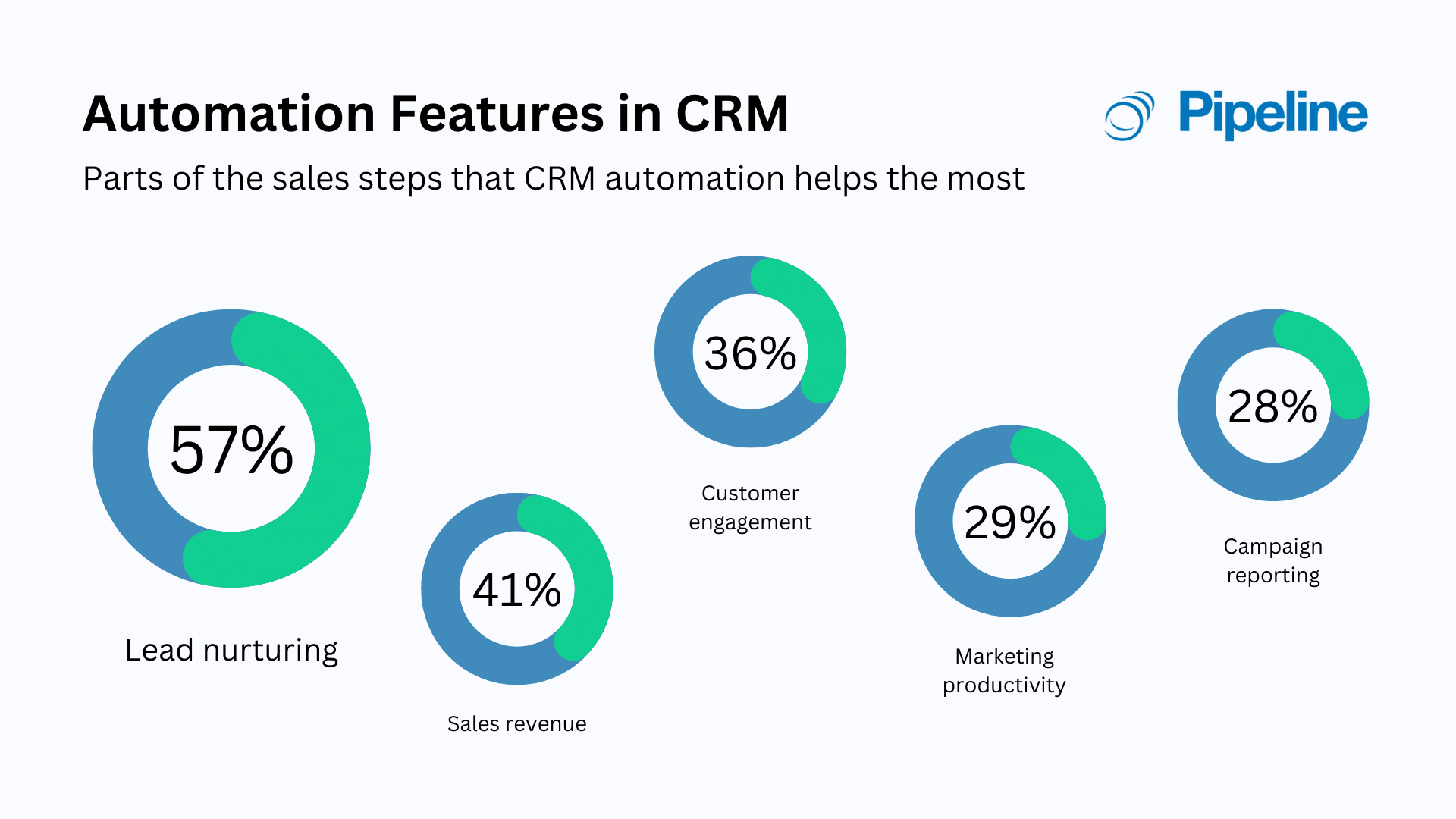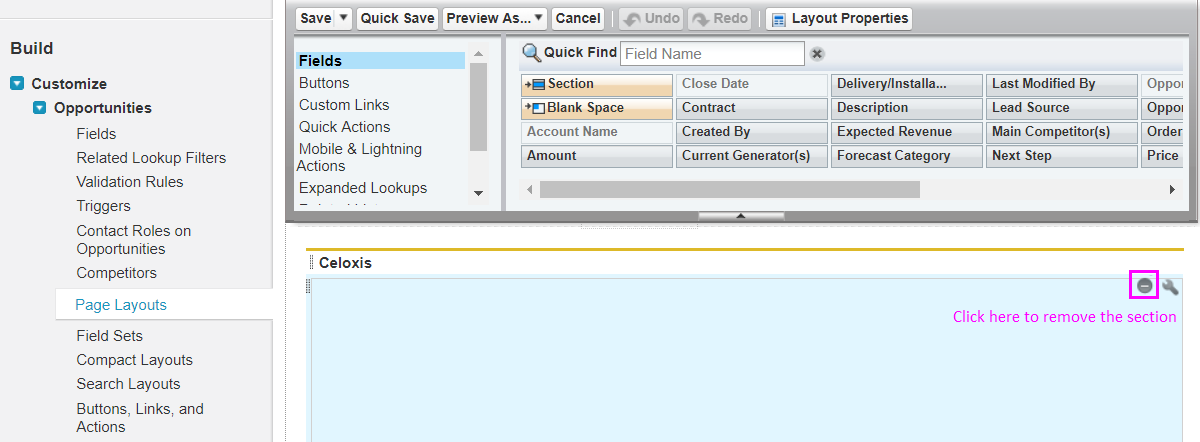
Supercharge Your Business: The Ultimate Guide to CRM Marketing for Explosive Growth
In today’s hyper-competitive business landscape, simply having a great product or service isn’t enough. You need to connect with your customers, understand their needs, and build lasting relationships. This is where Customer Relationship Management (CRM) marketing comes in. CRM marketing isn’t just about collecting data; it’s about using that data to create personalized experiences, drive engagement, and ultimately, boost your bottom line. This comprehensive guide will delve deep into the world of CRM marketing, providing you with the knowledge and strategies you need to transform your business and achieve explosive growth.
What is CRM Marketing? A Deep Dive
At its core, CRM marketing is a strategy that leverages CRM systems to gather, analyze, and utilize customer data to improve marketing efforts. It’s about moving beyond generic marketing campaigns and delivering targeted, relevant messages to the right customers at the right time. Think of it as the art and science of understanding your customers better than they understand themselves, and then using that understanding to create a more rewarding experience for them.
CRM marketing encompasses a wide range of activities, including:
- Data Collection and Management: Gathering and organizing customer information from various sources, such as website interactions, social media, email, and purchase history.
- Customer Segmentation: Dividing your customer base into distinct groups based on shared characteristics, behaviors, and preferences.
- Targeted Campaigns: Creating marketing campaigns tailored to specific customer segments, addressing their unique needs and interests.
- Personalization: Customizing marketing messages, offers, and experiences to individual customers.
- Automation: Automating repetitive marketing tasks, such as email campaigns and lead nurturing, to improve efficiency.
- Analytics and Reporting: Tracking and analyzing the performance of your CRM marketing efforts to identify areas for improvement.
The goal of CRM marketing is to build stronger customer relationships, increase customer loyalty, and drive revenue growth. It’s about moving away from a one-size-fits-all approach and embracing a more customer-centric strategy.
The Benefits of CRM Marketing: Why You Need It
Investing in CRM marketing is no longer a luxury; it’s a necessity for businesses that want to thrive in today’s competitive market. The benefits are numerous and far-reaching:
- Enhanced Customer Relationships: CRM marketing allows you to build deeper, more meaningful relationships with your customers. By understanding their needs and preferences, you can create more personalized and relevant experiences, leading to increased loyalty and advocacy.
- Increased Customer Lifetime Value (CLTV): By retaining customers longer and encouraging repeat purchases, CRM marketing helps you maximize the value of each customer over their lifetime.
- Improved Customer Retention: Personalized communication and targeted offers can significantly improve customer retention rates. Happy customers are less likely to switch to your competitors.
- Higher Conversion Rates: Targeted marketing campaigns are more likely to resonate with customers, leading to higher conversion rates and increased sales.
- Reduced Marketing Costs: By focusing your marketing efforts on the most promising leads and customers, CRM marketing can help you reduce wasted spending and improve your return on investment (ROI).
- Better Customer Service: CRM systems provide a centralized view of customer data, allowing your customer service team to provide faster, more efficient, and more personalized support.
- Data-Driven Decision Making: CRM marketing provides valuable insights into customer behavior and campaign performance, enabling you to make data-driven decisions that improve your marketing effectiveness.
- Increased Efficiency: Automation features in CRM systems streamline marketing tasks, freeing up your team to focus on more strategic initiatives.
In essence, CRM marketing empowers you to create a more customer-centric business, leading to greater profitability and long-term success.
Choosing the Right CRM System: A Step-by-Step Guide
Selecting the right CRM system is a critical decision that can significantly impact your CRM marketing success. With so many options available, it’s important to choose a system that aligns with your business needs and goals. Here’s a step-by-step guide to help you navigate the selection process:
- Define Your Needs and Goals: Before you start evaluating CRM systems, take the time to clearly define your business needs and goals. What do you want to achieve with CRM? What are your key pain points? What features are essential?
- Assess Your Current Infrastructure: Consider your existing technology infrastructure, including your website, email marketing platform, and other systems. Ensure that the CRM system you choose integrates seamlessly with your existing tools.
- Research CRM Vendors: Research different CRM vendors and explore their offerings. Look for vendors that specialize in your industry or have a strong track record of success.
- Evaluate Features and Functionality: Carefully evaluate the features and functionality of each CRM system. Consider features such as contact management, lead management, sales automation, marketing automation, reporting and analytics, and integration capabilities.
- Consider Scalability: Choose a CRM system that can scale with your business as it grows. Make sure the system can handle an increasing number of users, data, and transactions.
- Evaluate Pricing and Support: Compare the pricing plans of different CRM systems. Consider the total cost of ownership, including implementation costs, ongoing maintenance fees, and training expenses. Also, assess the vendor’s support options, such as online documentation, email support, and phone support.
- Request Demos and Trials: Request demos and free trials from your top CRM system contenders. This will allow you to test the systems and see how they work in practice.
- Get Feedback from Users: Talk to other businesses that use the CRM systems you are considering. Ask them about their experiences and get their feedback.
- Make Your Decision: After evaluating all the factors, make your decision and choose the CRM system that best meets your needs.
- Implementation and Training: Once you’ve selected a CRM system, focus on implementing it effectively and providing adequate training to your team.
Taking the time to carefully evaluate your options will ensure that you choose a CRM system that empowers your business and drives your CRM marketing success.
Key Strategies for Effective CRM Marketing
Once you have a CRM system in place, it’s time to implement effective CRM marketing strategies. Here are some key strategies to help you achieve your marketing goals:
- Data Segmentation: Divide your customer base into segments based on demographics, behaviors, purchase history, and other relevant factors. This allows you to create targeted marketing campaigns that resonate with specific customer groups.
- Personalization: Personalize your marketing messages, offers, and experiences to individual customers. Use their name, purchase history, and other relevant information to create a more relevant and engaging experience.
- Lead Nurturing: Nurture leads through the sales funnel by providing them with valuable content and information at each stage of the buying process. This helps to build trust and move leads closer to a purchase decision.
- Email Marketing: Utilize email marketing to communicate with your customers, share valuable content, and promote your products or services. Segment your email list and personalize your email campaigns to improve engagement.
- Social Media Marketing: Leverage social media platforms to engage with your customers, build brand awareness, and drive traffic to your website. Use social media to share valuable content, run contests, and interact with your followers.
- Customer Service Integration: Integrate your CRM system with your customer service platform to provide faster, more efficient, and more personalized support. This allows you to track customer interactions and resolve issues quickly.
- Loyalty Programs: Implement loyalty programs to reward your loyal customers and encourage repeat purchases. Offer exclusive discounts, rewards, and other benefits to your most valuable customers.
- Marketing Automation: Automate repetitive marketing tasks, such as email campaigns, lead nurturing, and social media posting, to improve efficiency and save time.
- Analytics and Reporting: Track and analyze the performance of your CRM marketing efforts to identify areas for improvement. Use analytics to measure key metrics, such as conversion rates, customer lifetime value, and return on investment.
- Continuous Optimization: Continuously test and optimize your CRM marketing campaigns to improve their effectiveness. Experiment with different messaging, offers, and targeting strategies to find what works best.
By implementing these strategies, you can maximize the effectiveness of your CRM marketing efforts and achieve your business goals.
CRM Marketing Best Practices: Tips for Success
To maximize your CRM marketing success, it’s important to follow best practices. Here are some tips to help you get the most out of your CRM marketing efforts:
- Focus on Customer Needs: Always put your customers first. Understand their needs, preferences, and pain points, and tailor your marketing efforts to meet those needs.
- Build a Strong Customer Database: Invest in building a comprehensive and accurate customer database. Collect data from various sources and ensure that the data is up-to-date and accurate.
- Segment Your Customers Effectively: Segment your customer base into meaningful groups based on shared characteristics and behaviors. This allows you to create targeted marketing campaigns that resonate with specific customer groups.
- Personalize Your Marketing Messages: Personalize your marketing messages, offers, and experiences to individual customers. Use their name, purchase history, and other relevant information to create a more relevant and engaging experience.
- Automate Your Marketing Tasks: Automate repetitive marketing tasks, such as email campaigns, lead nurturing, and social media posting, to improve efficiency and save time.
- Integrate Your Marketing Channels: Integrate your marketing channels, such as email, social media, and website, to create a seamless customer experience.
- Track and Analyze Your Results: Track and analyze the performance of your CRM marketing efforts to identify areas for improvement. Use analytics to measure key metrics, such as conversion rates, customer lifetime value, and return on investment.
- Continuously Test and Optimize: Continuously test and optimize your CRM marketing campaigns to improve their effectiveness. Experiment with different messaging, offers, and targeting strategies to find what works best.
- Provide Excellent Customer Service: Provide excellent customer service to build customer loyalty and advocacy. Respond to customer inquiries promptly and resolve issues quickly.
- Stay Up-to-Date: Stay up-to-date on the latest CRM marketing trends and best practices. Attend industry events, read industry publications, and take online courses to expand your knowledge.
By following these best practices, you can set yourself up for CRM marketing success and achieve your business goals.
Measuring the Success of Your CRM Marketing Efforts
Measuring the success of your CRM marketing efforts is crucial to ensure that your efforts are effective and that you are achieving your business goals. Here are some key metrics to track:
- Customer Acquisition Cost (CAC): The cost of acquiring a new customer. This is a key metric for measuring the efficiency of your marketing efforts.
- Customer Lifetime Value (CLTV): The predicted revenue a customer will generate over their lifetime. This metric helps you understand the long-term value of your customers.
- Conversion Rates: The percentage of leads that convert into customers. This metric measures the effectiveness of your marketing campaigns in driving sales.
- Customer Retention Rate: The percentage of customers that you retain over a specific period. This metric measures your ability to keep your customers happy and coming back for more.
- Churn Rate: The percentage of customers that you lose over a specific period. This metric helps you identify areas where you can improve customer satisfaction and retention.
- Website Traffic: The number of visitors to your website. This metric helps you measure the effectiveness of your marketing efforts in driving traffic to your website.
- Email Open and Click-Through Rates: The percentage of emails that are opened and the percentage of recipients that click on links in your emails. These metrics measure the effectiveness of your email marketing campaigns.
- Social Media Engagement: The number of likes, shares, comments, and other interactions on your social media posts. This metric measures the effectiveness of your social media marketing efforts.
- Return on Investment (ROI): The profit generated from your marketing efforts divided by the cost of those efforts. This metric measures the overall profitability of your marketing campaigns.
By tracking these metrics, you can gain valuable insights into the performance of your CRM marketing efforts and identify areas for improvement. Use this data to make informed decisions about your marketing strategy and to optimize your campaigns for maximum impact.
Common Challenges in CRM Marketing and How to Overcome Them
While CRM marketing offers numerous benefits, businesses often face challenges when implementing and managing their CRM marketing efforts. Here are some common challenges and how to overcome them:
- Data Quality Issues: Poor data quality can undermine your CRM marketing efforts. To overcome this, invest in data cleansing and validation tools. Regularly update and maintain your customer database.
- Lack of Integration: If your CRM system doesn’t integrate seamlessly with other systems, it can create data silos and hinder your marketing efforts. Choose a CRM system that integrates with your existing tools and platforms.
- Resistance to Change: Employees may resist adopting a new CRM system or changing their existing workflows. Provide adequate training and support to ensure that employees understand the benefits of CRM and how to use it effectively.
- Lack of Resources: Implementing and managing CRM marketing efforts can be time-consuming and resource-intensive. Allocate sufficient resources to your CRM marketing initiatives, including budget, personnel, and training.
- Difficulty Measuring ROI: It can be challenging to measure the ROI of your CRM marketing efforts. Track key metrics, such as customer acquisition cost, customer lifetime value, and conversion rates, to assess the effectiveness of your campaigns.
- Choosing the Wrong CRM System: Selecting a CRM system that doesn’t align with your business needs can lead to frustration and wasted resources. Carefully evaluate your options and choose a CRM system that meets your specific requirements.
- Lack of a Clear Strategy: Without a clear CRM marketing strategy, your efforts may be unfocused and ineffective. Define your goals, identify your target audience, and create a detailed plan to achieve your marketing objectives.
- Poor Data Analysis: If you are not analyzing your data effectively, you will not be able to make informed decisions about your marketing strategy. Invest in data analytics tools and train your team to analyze data effectively.
By addressing these challenges, you can improve your CRM marketing efforts and achieve your business goals.
Future Trends in CRM Marketing
The world of CRM marketing is constantly evolving. Staying ahead of the latest trends is essential to remain competitive. Here are some key trends to watch:
- Artificial Intelligence (AI) and Machine Learning (ML): AI and ML are transforming CRM marketing, enabling businesses to personalize customer experiences, automate marketing tasks, and gain deeper insights into customer behavior.
- Personalization at Scale: Businesses are moving beyond basic personalization and creating highly personalized experiences that cater to individual customer preferences and needs.
- Omnichannel Marketing: Businesses are adopting omnichannel marketing strategies to provide a seamless customer experience across all channels, including email, social media, website, and mobile.
- Customer Data Platforms (CDPs): CDPs are becoming increasingly popular as businesses seek to centralize and unify their customer data.
- Privacy and Data Security: With growing concerns about data privacy, businesses are prioritizing data security and compliance with regulations such as GDPR and CCPA.
- Mobile CRM: Mobile CRM is becoming increasingly important as businesses seek to provide their sales and marketing teams with access to customer data and tools on the go.
- Voice Search Optimization: With the rise of voice search, businesses are optimizing their content and marketing efforts for voice-based queries.
By staying informed about these trends, you can position your business for success in the future of CRM marketing.
Conclusion: Embracing the Power of CRM Marketing
CRM marketing is no longer an option; it’s a necessity for businesses that want to thrive in today’s competitive market. By leveraging the power of CRM systems, businesses can build stronger customer relationships, increase customer loyalty, and drive revenue growth. This guide has provided you with the knowledge and strategies you need to implement effective CRM marketing campaigns and achieve your business goals.
Remember to choose the right CRM system, implement effective strategies, and continuously measure and optimize your efforts. By embracing the power of CRM marketing, you can transform your business and unlock its full potential. The journey towards customer-centricity is ongoing, so keep learning, adapting, and innovating to stay ahead of the curve. The future of marketing is about building genuine connections and providing exceptional customer experiences. Embrace CRM marketing, and watch your business flourish!



